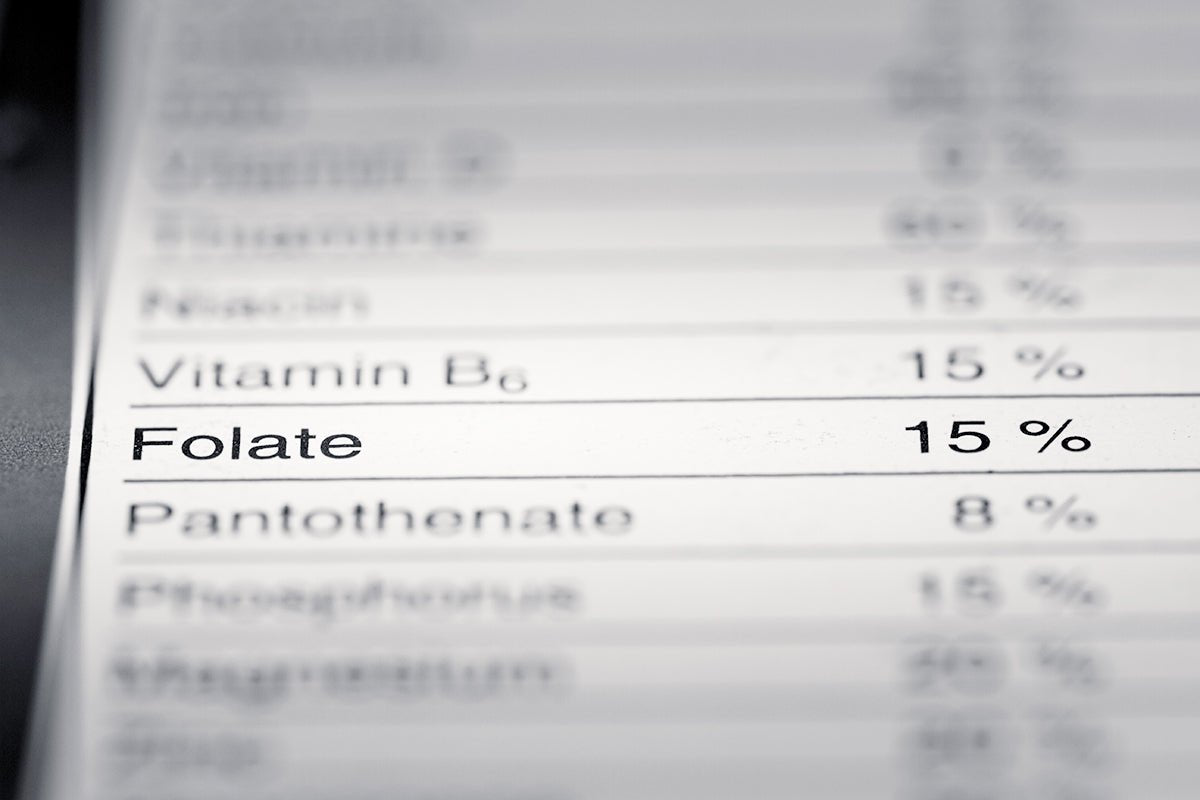FREE MELATONIN GIFT ON ORDERS $39.99+ AUTO APPLIED AT CHECKOUT
FREE MELATONIN GIFT ON ORDERS $39.99+ AUTO APPLIED AT CHECKOUT
FREE MELATONIN GIFT ON ORDERS $39.99+ AUTO APPLIED AT CHECKOUT
FREE MELATONIN GIFT ON ORDERS $39.99+ AUTO APPLIED AT CHECKOUT
FREE MELATONIN GIFT ON ORDERS $39.99+ AUTO APPLIED AT CHECKOUT
FREE MELATONIN GIFT ON ORDERS $39.99+ AUTO APPLIED AT CHECKOUT
FREE MELATONIN GIFT ON ORDERS $39.99+ AUTO APPLIED AT CHECKOUT
FREE MELATONIN GIFT ON ORDERS $39.99+ AUTO APPLIED AT CHECKOUT
FREE MELATONIN GIFT ON ORDERS $39.99+ AUTO APPLIED AT CHECKOUT
FREE MELATONIN GIFT ON ORDERS $39.99+ AUTO APPLIED AT CHECKOUT
FREE MELATONIN GIFT ON ORDERS $39.99+ AUTO APPLIED AT CHECKOUT
FREE MELATONIN GIFT ON ORDERS $39.99+ AUTO APPLIED AT CHECKOUT
FREE MELATONIN GIFT ON ORDERS $39.99+ AUTO APPLIED AT CHECKOUT
FREE MELATONIN GIFT ON ORDERS $39.99+ AUTO APPLIED AT CHECKOUT
FREE MELATONIN GIFT ON ORDERS $39.99+ AUTO APPLIED AT CHECKOUT
FREE MELATONIN GIFT ON ORDERS $39.99+ AUTO APPLIED AT CHECKOUT
FREE MELATONIN GIFT ON ORDERS $39.99+ AUTO APPLIED AT CHECKOUT
FREE MELATONIN GIFT ON ORDERS $39.99+ AUTO APPLIED AT CHECKOUT
FREE MELATONIN GIFT ON ORDERS $39.99+ AUTO APPLIED AT CHECKOUT
FREE MELATONIN GIFT ON ORDERS $39.99+ AUTO APPLIED AT CHECKOUT
FREE MELATONIN GIFT ON ORDERS $39.99+ AUTO APPLIED AT CHECKOUT
FREE MELATONIN GIFT ON ORDERS $39.99+ AUTO APPLIED AT CHECKOUT
FREE MELATONIN GIFT ON ORDERS $39.99+ AUTO APPLIED AT CHECKOUT
FREE MELATONIN GIFT ON ORDERS $39.99+ AUTO APPLIED AT CHECKOUT
EZ Melts Health Blog

EZ Melts Health Blog
Your Simple Guide to Vitamin Bs
by Annie-Eliza Stevens
on Apr 22 2023
Reading Time: 4 minutes
There are eight B vitamins to keep track of, and all of them are crucial to your metabolism, energy levels, brain function, and well…most functions in the human body.
All eight of these nutrients are found in food, however, millions of people in the United States—and the world—are vitamin deficient, meaning that many people aren’t living at their peak wellness.
There’s a lot of information out there on just vitamin Bs alone, so we’ve made a simplified guide with a snapshot of what systems in your body each vitamin B supports.
Vitamin B1 (Thiamin)
For:
Kidneys
Immune system
Cognitive function
Nerves
Vitamin B1, also known as thiamine, is necessary for brain function and energy production. It’s also connected to healthy kidney function and immune system function. Thiamine is an essential nutrient that must be obtained from food or supplements; like the other B vitamins, it cannot be made by the body.
Vitamin B2 (Riboflavin)
For:
Metabolism
Healthy organs
Immune system
DNA/RNA production
Vitamin B2 (riboflavin) is an essential nutrient that helps with the production of DNA and RNA. It's also needed for the maintenance of healthy skin, hair and nails. Vitamin B2 helps with the metabolism of carbohydrates, fats and proteins.
Vitamin B1 is also found in many foods made with yeast, including beer and baked goods. It's also important for the maintenance of healthy heart muscles and red blood cells.
Vitamin B3 (Niacin)
For:
Cell turnover
Energy levels
Healthy digestion
Healthy skin
Nervous system
You may know vitamin B3 as niacin. It's a water-soluble vitamin that's important for energy production and helps to maintain a healthy digestive system.
Niacin also plays an important role in keeping your skin healthy, as well as maintaining the health of your nervous system. Niacin is found in meat, fish, poultry, and certain vegetables.
Vitamin B5 (Pantothenic Acid)
For:
Hormone production
Energy levels
Metabolism
Healthy organs
Vitamin B5 is one of the lesser-known B vitamins. It plays an important role in energy production and metabolism, as well as helping your body maintain healthy skin, hair, and nails. It's also known as pantothenic acid because it can be synthesized in the body from pantothenate (vitamin B5).
Vitamin B6 (Pyridoxine)
For:
Nervous system
Metabolism
Energy production
Childhood development
Vitamin B6 supports many bodily functions, including growth and development, energy production and protein metabolism, and the nervous system. Many people who don’t eat meat have a vitamin b 6 deficiency, so it’s important to make sure you’re getting enough if you're a vegetarian or vegan.
Vitamin B7 (Biotin)
For:
Healthy hair, skin, nails,
Metabolism
Energy levels
Muscle support
Cholesterol levels
Vitamin B7 (also known as biotin) is a water-soluble vitamin that plays an important role in energy production. It's also essential for metabolism, which helps you process the food you eat and turn it into energy.
The main function of vitamin B7 is to help convert carbohydrates into glucose (blood sugar), which gives us the energy we need to stay awake and active throughout the day, but is connected to so many other processes as well, including—yes—hair, skin, and nails, which is is most known for.
Vitamin B9 (Folic Acid or Folate)
For:
Lower likelihood of birth defects
Heart health
Cognitive function
Nervous system
Vitamin B9 (folic acid) is essential for cell growth and repair. It also supports the production of red blood cells, which help deliver oxygen to your tissues. Folic acid is linked to healthy brain function, nervous system health, and heart health. Folic acid is especially important during pregnancy because it is linked to supporting lower instances of birth defects.
Vitamin B12
For:
Nerve function
Red blood cell count
Metabolism
Energy levels
Vitamin B12 is a water-soluble vitamin that helps maintain nerve cells and red blood cells. It also helps make DNA, red blood cells, and fatty acids (fats). Vitamin B12 plays an important role in the metabolism of fats, carbohydrates, and proteins.
Vitamin B12 plays an important role in maintaining healthy nervous system function as well as energy levels. It supports cardiovascular health by helping to maintain a healthy heart muscle as well. This is the B vitamin most people are lacking in their diet, especially vegans and vegetarians.
B-Complex
B-Complex is a supplement that includes all eight essential B vitamins. While it’s rare to be lacking all eight of these Bs in your diet, many people today aren’t getting enough of all eight. Covering your bases with a quality B-Complex vitamin might be your best bet if you aren’t sure.
Conclusion
All these Bs might be making your head spin at this point—but Bs are essential to your health. Simplify the hassle of keeping them all straight by taking a B-Complex supplement.
In addition to a well-rounded diet, a B-Complex supplement can help to bridge any nutrient gap you may have with your vitamin Bs.
Our vitamins are non-GMO, vegan, sugar-free, and free from the nine most common allergens. We support the planet with the ingredients we use in our supplements.
We make it EZ to get the nutrition you need with our fast-melting supplements. And with our subscription service, it’s even easier to take care of yourself. Use code EZ30 at checkout to save 30% off your first subscription.

EZ Melts Health Blog
What is Folate and Why is it Important
by Annie-Eliza Stevens
on Jun 27 2021
Read time: 3 minutes
Grow your own DNA! Folate, or folic acid, is also known as vitamin B9. It is a nutrient found in food and supplements that is key for physical and mental development. All vitamins and minerals are vital for optimal health; however, folic acid is especially important for fetal development, which is why people who are pregnant should take care to ensure proper consumption of B9. In addition, folate and folic acid have many other benefits.
Folate vs Folic Acid
Folate is the form of B9 which is found in foods, while folic acid is the synthetic version of B9. Both are safe, approved by the FDA, and equally useful. Folate is found in whole foods such as leafy greens like spinach and broccoli, chickpeas and kidney beans, liver, and more.
Sometimes, however, it can be hard to get the recommended daily amount, and people, especially people who are pregnant, need adequate amounts in order to thrive. This is where folic acid comes in! As with many vitamins and minerals, doctors will recommend folic acid supplements to make sure all the bases are covered.
When consumed, folic acid is digested, converted into an active form that the body can use, and enters the bloodstream. However, sometimes the body can’t convert all of it if there are excess amounts in the system, so be sure to follow the recommendations for daily intake.
Benefits of B9
Folic acid supplements are one of the most important vitamins to add to a daily regimen when pregnant. This is because, during the gestation of a fetus, a person’s body needs to increase the production of DNA, which requires folic acid. Vitamin B9 plays a critical role in forming a fetus’s neural tube. Taking folic acid supplements when pregnant can decrease the likelihood of congenital heart defects and other birth defects, preterm birth, and ectopic pregnancy.
But we always need B9, so it’s important for everyone. Folic acid, along with the other seven B vitamins, supports a healthy metabolism by breaking down carbohydrates into fuel for energy. Vitamin B9 also helps support an even mood and emotional health and has been found to aid other vitamins in lowering the risk of heart disease.
Folate Deficiency
So how do you know if you’re low on folate? There are some physical signs to note, such as poor childhood growth, an inflamed tongue, bad breath, a weak appetite, diarrhea, sluggishness, and shortness of breath. If you believe you are deficient, consult a doctor about taking a supplement to support your health.
People who are especially at risk of a folic acid deficiency are people who overuse alcohol, people with digestive issues such as IBS or celiac disease, and people with certain genetic conditions. If you fall into one of these, or just want to focus on getting the nutrients you need, look at what you eat daily. Folate foods, like dark green leafy vegetables, beans, peanuts, and sunflower seeds may help you get the daily serving of folate you need. Also, a folate supplement can help. Consider adding the EZ Melts’ folate supplement to your daily routine.
Our vitamins are fast melting and have a delicious customer-approved flavor. Unlike many major vitamin brands, our tablets are vegan and do not include harmful ingredients, artificial flavors, or GMOs. Try us out and see the difference!
___
Written by Annie-Eliza Stevens

EZ Melts Health Blog
Reducing the Risk of Brain and Spine Defects
by Annie-Eliza Stevens
on Oct 23 2020
Birth defects are more common than you think.
There are an estimated 7.9 million infants born with birth defects around the world every year. Right now, that is 6% of all births annually [1].
In the United States alone, 120,000 infants are born with birth defects, due to a combination of genetic and environmental factors [2]. That’s 1 in 33 babies. Unfortunately in many cases the cause is unknown.
However, there is a way to reduce the likelihood of brain and spinal defects. Studies show that taking folic acid, the supplement version of B-9 (folate) can help reduce the risk [3]! This is because folate helps develop the neural tube in a fetus, which is linked to both spine and brain health.
What is Folate?
Also known as folic acid, this vitamin helps make genetic material and it plays a main role in dividing and generating cells.
The average person needs less than pregnant women, but the correct intake is important for all. Here is a chart of what bodies need according to age group. As you can see, it’s recommended a pregnant or nursing woman takes anywhere from 400 to 600mcg DFE, but always consult with your medical professional before starting a new vitamin regimen.
Folate vs Folic Acid
Is there a difference between folate and folic acid? Yes and no!
They are both vitamin B-9, however folate naturally occurs in food, and folic acid is manufactured in labs as supplements and in fortified foods [4].
Folic acid tablets are usually the form of B-9 recommended before and during pregnancy. In addition to helping lower the likelihood of birth defects, it also may help in lowering the chances of preeclampsia and anemia [5].
You and your baby deserve the best wellness and risk-reducing methods available, and taking folic acid tablets is a crucial first step to peace of mind and self-care.
Folic Acid Supplements
Everyone needs B-9, as they do all other vitamins and minerals! Usually people get their daily folate through food, although checking in with a doctor if you have any symptoms of deficiency is highly recommended.
Deficiencies can be caused by many things, like poor diet, alcoholism, conditions like celiac disease, dialysis, and types of anemia!
If you find yourself trying folic acid tablets, make sure you are choosing a brand that cares about what they put into their vitamin supplements as much as you care about what goes into your body!
The best part about choosing EZ Melts? Our tablets are fast melting, EZ to take, and have delicious customer-approved flavors. In addition, all our supplements have zero chemical additives, are vegan, and non-GMO.
Thanks for being a part of our community!
Sources
https://www.nature.com/scitable/topicpage/birth-defects-causes-and-statistics-863/#:~:text=Every%20year%2C%20an%20estimated%207.9,children%20are%20disabled%20for%20life.
https://www.cdc.gov/ncbddd/birthdefects/facts.html
https://www.cdc.gov/ncbddd/folicacid/about.html
https://www.webmd.com/diet/qa/what-is-the-difference-between-folate-and-folic-acid#:~:text=Folate%20is%20the%20generic%20name,acid%20have%20the%20same%20effects.
___
Written by Annie-Eliza Stevens


















